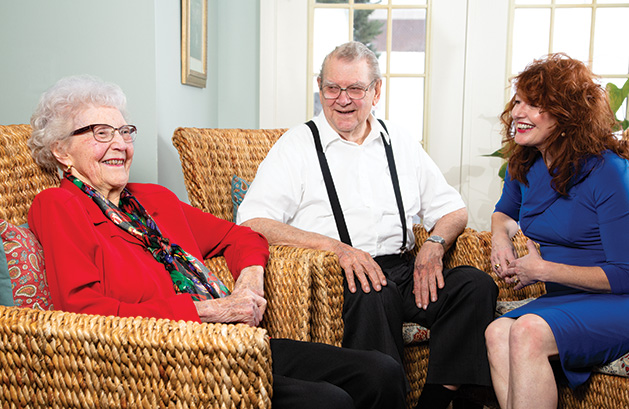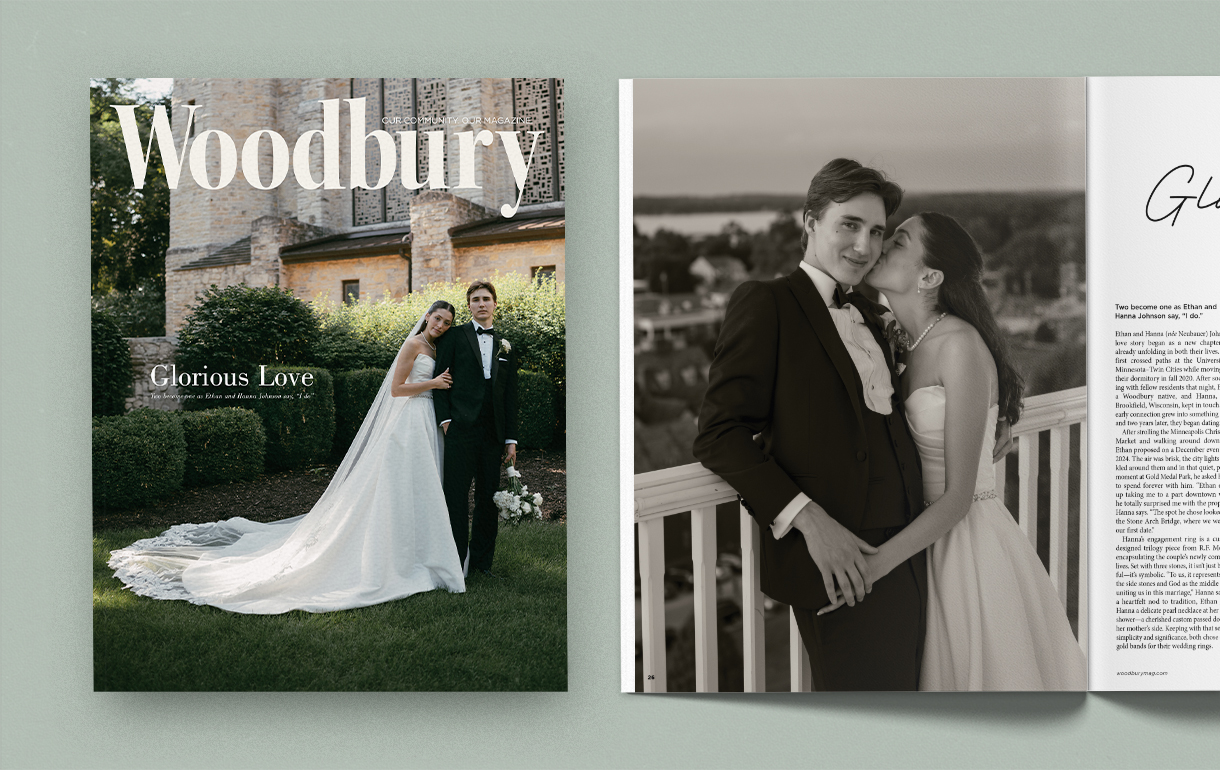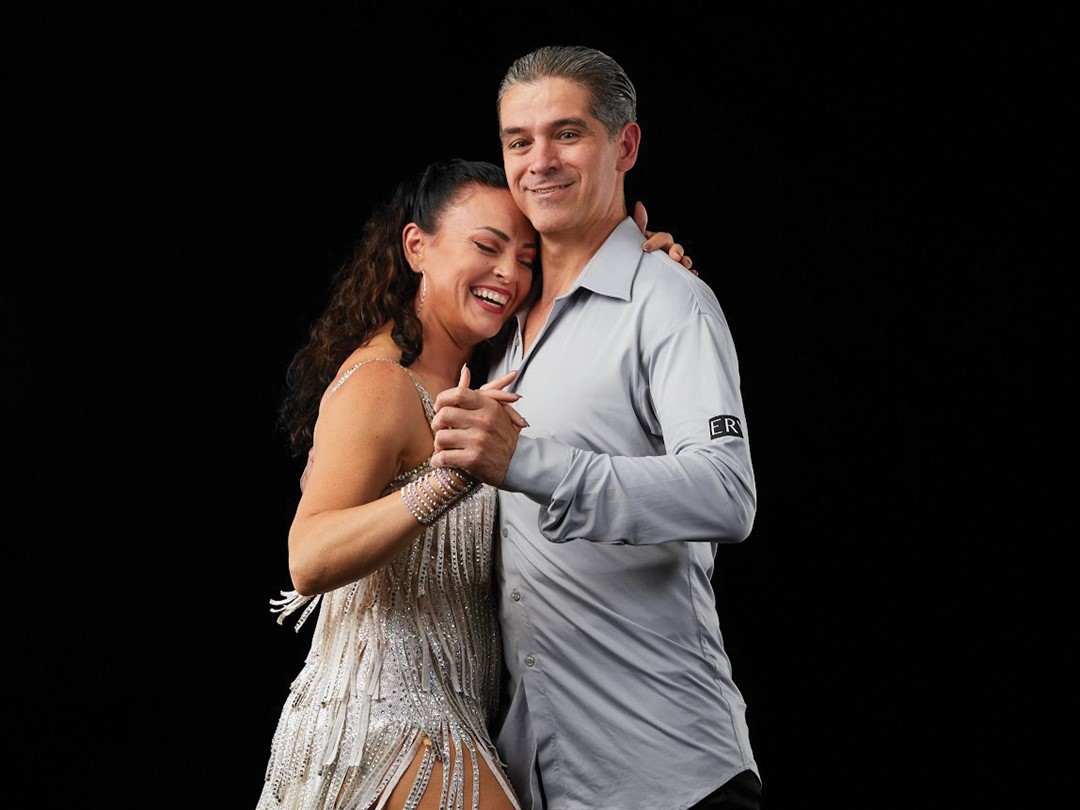
Columnist Margaret Wachholz, right, with Woodbury Senior Living residents Charles Velander, center, and Verna Toso. Photo: Joel Schnell
We obsess about how to live—but do we talk about how to die?
There are untapped sources of meaning all around us. Do we obsess about how we eat, dress, our jobs, our spouses, our children? Do we preface most of our sentences to clarify that we aren’t something we obviously are not?
We obsess about how to live—but do we talk about how to die? Do we talk about death with the honor it deserves, as one of life’s greatest, most absorbing challenges? Death is the great prompter: without it, we would often never initiate or stop what we do. Ernest Becker said, “The irony of man’s condition is that the deepest need is to be free of the anxiety of death and annihilation; but it is life itself which awakens our anxiety, and so we must shrink from being fully alive.”
At the funeral of Woodbury’s matriarch Inez Oehlke, the pastor described Oehlke as one who worked her entire life on “perfecting her love.” Many loving and grateful people have lived lives of loss and suffering; they maintain a grateful outlook amid the rancor of life. They have best utilized the great prompter to thoughtfully plunge into life. Oehlke would often holler, “Come in, child,” when you stopped by her room. Her conversations about achieving versus contributing, and love, tapped into a well of deep feelings. With Oehlke, there was an answer, rather than the answer. In this imperfect world, we cannot force easy answers. But when I was with Oehlke, a life well-lived would give sufficient results.
Margaret Wachholz is the campus marketing director at Woodbury Senior Living. In her column, she shares observations and wisdom about aging and senior living in our community.






















